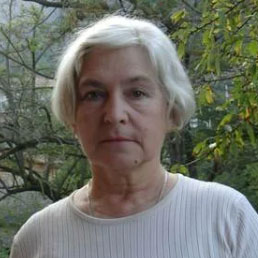Novlyanskaya, Z.N.

Leading Researcherat the Laboratory of Giftedness, Federal Scientific Centre for Psychological and Interdisciplinary Research.
-
Transition from Play to Learning in the Course of Literary Reading in the System of Developmental Education by D.B. Elkonin and V.V. DavydovLomonosov Psychology Journal, 2025, 3. p. 294-317read more1317
-
Background. The article touches upon the acute psychological and pedagogical issue of the child's transition from preschool play to school education.
Objective. The goal is to show the possibility of such a transition in the process of teaching the author's course of developmental teaching in literature, aimed at educating a cultured reader capable of conducting a dialogue with the author, mediated by a literary text. In order to do this, the child has to master practically the interconnected positions of the author and the reader, as well as the auxiliary positions the "critic" and the "theorist".
Study Participants. 27 students of the Moscow school № 91 took part in the classes, held over two years (in the first and second grades) according to the programme "Literature as a subject of the aesthetic cycle" by G.N. Kudina and Z.N. Novlyanskaya.
Methods. The analysis of the psychological content of different types of children's play as a source of prerequisites for artistic development was applied along with the qualitative analysis of lesson protocols during classes ensuring the transition from play to learning.
Results. The article provides a brief psychological description of the mentioned positions. The difference between a game aimed at mastering conceptual content — and a game that develops into the creation of an artistic image is shown. The stages of development of children's play from subject-procedural to "directing" and the prerequisites for artistic development that a child acquires in each of them are considered. The stages of the child's gradual transition from the position of a participant in the game to the position of the author and reader (viewer) are described. The protocols of classes in the first and second grades are analyzed. Particular attention is paid to the moments of generation of the artistic concept, the task of the child's transition to the character's point of view, the appearance of a viewer absent in a regular game, and a discussion of the results of the game.
Conclusions. It is shown that under appropriate conditions, the game becomes a space for a smooth transformation of gaming activity into educational activity and introduces the child into the position of the author and reader of works of art. This outlines the path of such a transition from play to learning, in which the cognitive and emotional experience of a preschooler acquired in the game is not devalued, but is included in further development.
Keywords: game; play-dramatization; theatrical game; developing training; author’s position; reader’s position; M.M. Bakhtin DOI: 10.11621/LPJ-25-34
-









